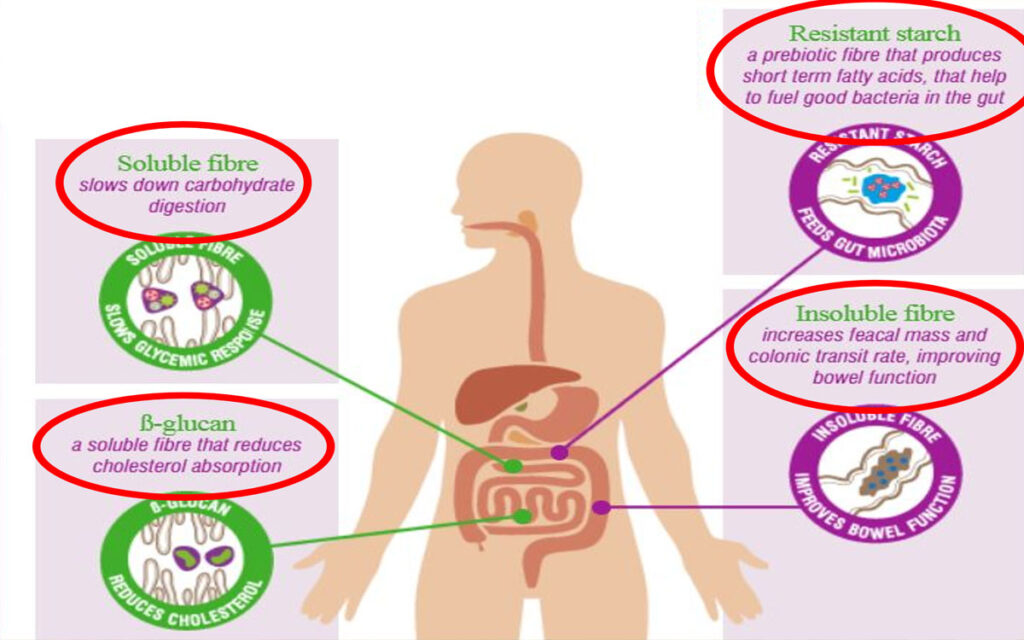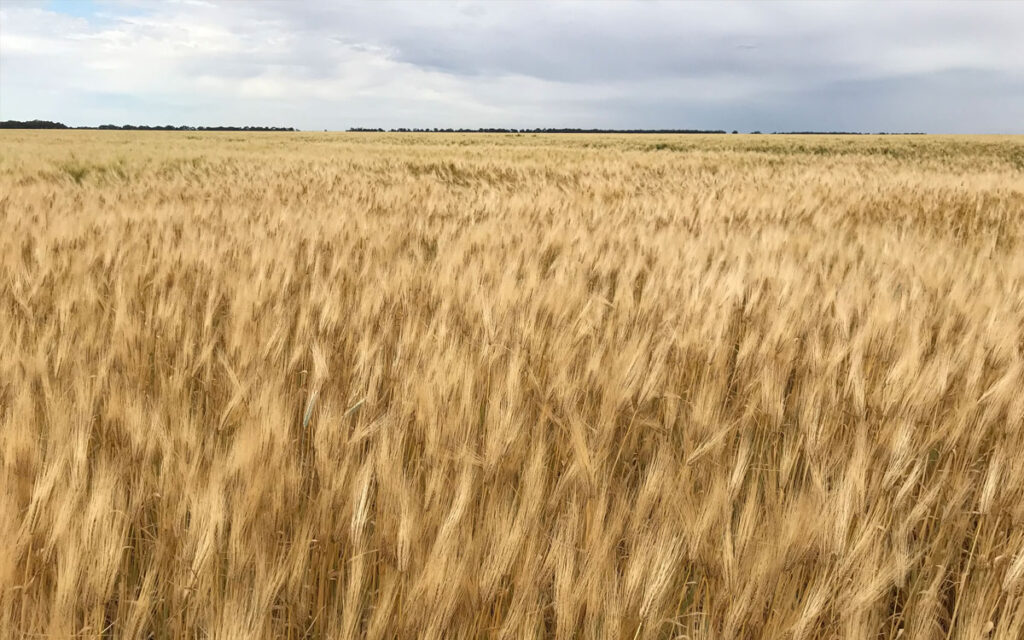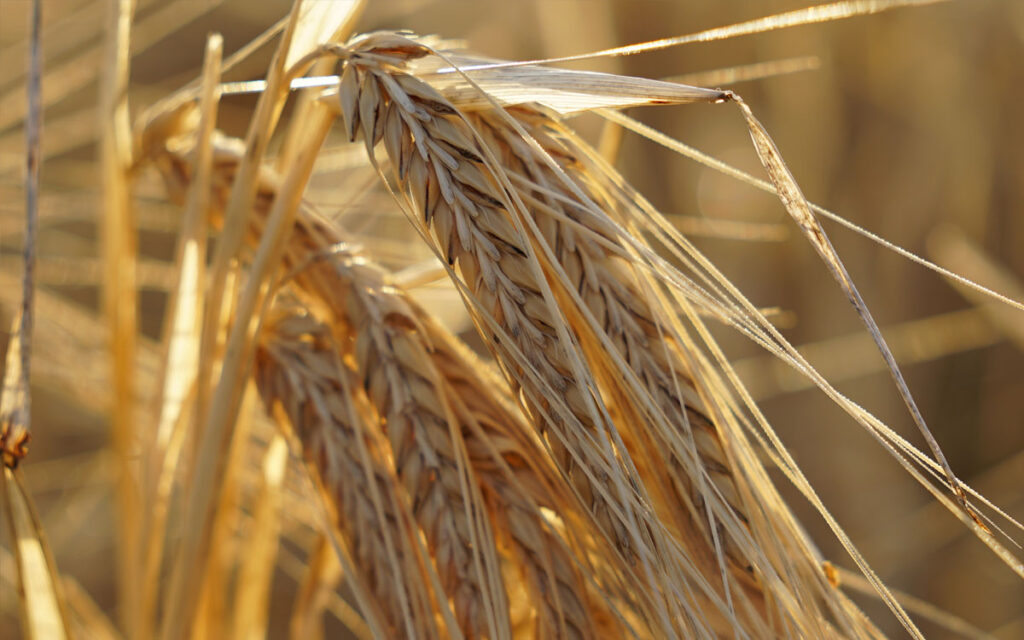Global health syndemics
To feed the future global population it is of prime importance that we have nutritious, safe and sustainably produced food of which its supply is secured. In the meantime we are faced globally with major food related diseases, like malnutrition in all its forms, diabetes and high blood pressure. To counter these syndemics, there is an urgent need to improve the nutritional quality of our food. Numerous food companies invest in developing healthy food products. These products have limited success in the market. One important reason for this is the consumer intuition that healthy food is not tasty. Therefore developing tasty but also nutritious food poses a challenge for food product development.
Cereals as important nutrient source
Cereal based foods are important carriers of nutrients, like protein, dietary fibre, minerals and energy and contribute significantly to their intake (Weegels 2019) and they outperform fruit and vegetables. Despite the relatively large consumption of cereals there remains a gap between the recommendations and the intakes on nutrients. Therefore there is a need for even more nutritious cereals to improve human nutrition.
Australia’s national science agency CSIRO developed using conventional breeding a unique barley variety that is full of nutrients, especially fibres and minerals, BARLEYmax®. It is relatively low in starch and contains high amounts of fibres, proteins and a range of minerals and vitamins. BARLEYmax®︎︎ has twice the total dietary fiber content of typical barley. It is rich in dietary
fiber compared to oats and rye as well.
The fibres consist of normal bran, resistant starch, inulin and beta glucan. The latter three are known for their pre-biotic effect, which helps to maintain gut health by stimulating the microbiome and by improving the protective mucus layer in the large intestine. Fibres in general help bowel function by acting as bulking agents.

Furthermore, consumption of at least 1 g of beta glucan/day helps to improve cardiovascular health. Many nutritional studies with BARLEYmax® show that it improves the composition of the microbiome, stimulating the production of short chain fatty acids that have a positive effect on metabolism. Also, the top layer of the intestines is made thicker, which improves the digestion of food. BARLEYmax® has been shown to have a low glyceamic index, which results in a less large peak of blood glucose after eating. So BARLEYmax® is full of healthy nutrients, but can it be turned into delicious food?
Develop delicious food:
breaking the healthy is not tasty paradigm.

The challenge for healthy foods is to make them delicious. In the bran of BARLEYmax® there are many flavour precursors. After roasting and baking these flavours are formed and gives these products a pleasant nutty aroma and sweet flavour.
The aroma and taste is considerably improved in wholemeal bread when wholemeal was partially replaced by BARLEYmax®. Also, when BARLEYmax® was mixed with rice and boiled, it provided also a pleasant nutty flavour to the rice.
BARLEYmax® is a versatile healthy and tasty cereal for many applications
Not surprisingly, BARLEYmax® has been used in Australian and Asian markets in a broad array of products:
- Bakery: flour and wholemeal replacement, sour dough bread, cookies
- Food service: retort rice and retort soups, salad toppings, ready meals, onigiri (rice balls), rice burgers
- (Breakfast) cereals: granola bars, noodles, pearled grains, cooked and puffed grains, flakes.
- Dairy drink alternatives and powdered drink mixed with cocoa, BARLEYmax® flour, soybean powder, etc.)
In all these products the taste has been boosted beyond expectations and brings added value in nutritiousness and also in flavour.
About Dr. Ir. Peter Weegels, Director European Bakery Innovation Centre
Sonneveld has always emphasised the importance of innovation. We have been able to see this in the relatively high staff levels within the Innovation & Development (I&D) department, managed by Peter Weegels, an expert in enzyme technology.
It is Peters’ professional mission is to make Cereal Science work. Educated as a Nutritionist (MSc Hons., Univ. Wageningen) and Food Scientist (PhD, Univ. of London), understanding wheat gluten functionality and making it work in products is a good description of his main career path (TNO Nutrition, Latenstein, Unilever R&D, Sonneveld Group BV). This work was awarded 3 times and nominated once (IWGA, Dutch Best Nutrition Award). Knowledge and expertise dissemination is the second path via the European Bakery Innovation Centre (global open innovation) and Cereals&Europe organising over 35 international workshops, conferences, short courses and seminars. Peter Weegels (co-)authored over 50 publications and patents and over 70 confidential (contract) R&D reports.

